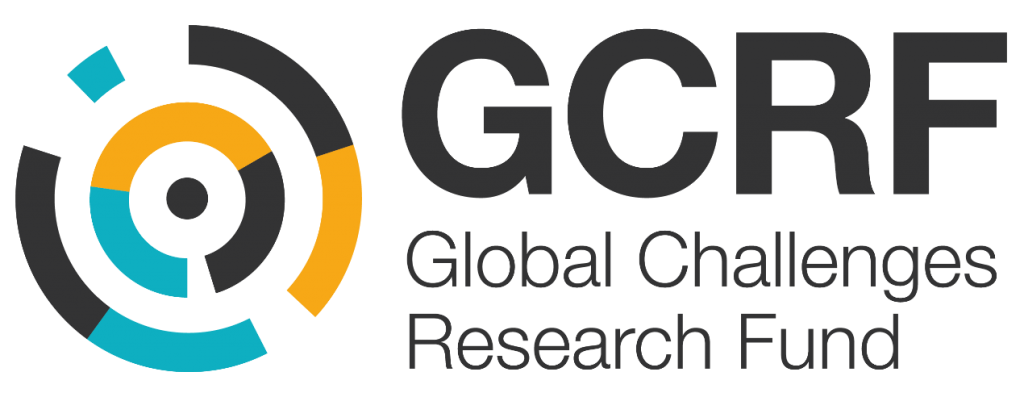UK Research and Innovation (UKRI) has announced 141 new international development research projects that is aimed at tackling global challenges such as environmental disasters, education for children living through conflict and malnutrition.
These awards aim to bring together a wide range of researchers and experts from across the UK and developing countries to generate innovative solutions to intractable development issues and contribute to enabling healthier and safer lives, sustainable development and prosperity for all.
As a part of this announcement, the University of Salford THINKlab has been awarded almost £1 million from the UK Research and Innovation Collective Fund to develop an advanced digital platform which can be used by various government agencies and communities in Sri Lanka, Pakistan and Malaysia to work together to analyse, forecast, visualize and debate disaster risk and to choose development plans that ensure sustainability and equitable resilience giving due considerations to climate change adaptation.
This project aims to promote a participatory approach that supports the transparent and democratic involvement of all the relevant stakeholders builds on the THINKlab’s ground breaking research on digital platforms for sustainable cities and on the disaster community resilience research from the Centre for Disaster Resilience at the University of Salford. It will also include experts from the University of York (UK), University of Moratuwa (Sri Lanka), University of Peshawar (Pakistan), Universiti Tun Hussein Onn Malaysia and the Universiti Teknologi Malaysia, thus bringing together their research expertise in social science, urban planning, climate change models and community engagement. The project is supported by an international advisory committee and key government organisations such as disaster management centers, urban development authorities and community-based charity organisations in Sri Lanka, Pakistan and Malaysia.
TRANSCEND falls under the GCRF Challenge portfolio which is part of the larger UKRI GCRF Collective Programme – an investment of £147 Million designed to impact global health, education, sustainable cities, food systems, conflict and resilience. Environmental disasters, education for children living through conflict and malnutrition are just some of the global challenges being tackled. It aims to bring together diverse global partnerships with researchers and experts from across the UK and developing countries to generate innovative solutions to these challenges. Professor Andrew Thompson, UKRI’s International Champion, said: “UKRI is proud to announce this initiative celebrating the spirit of international collaboration in research and innovation. The pandemic has irrefutably demonstrated that we are part of a global community and must work together to tackle global crises. This exciting Programme brings together diverse expertise from across the globe, ensuring that the voices of those most impacted are empowered to drive sustainable solutions for those most in need”.
“Working in partnership with developing nations, the UK’s research and innovation system has a crucial role to play in finding innovative solutions to interlinked issues such as environmental disasters, extreme poverty and food security. These international development research projects announced today are essential to finding these solutions.”
Professor Terrence Fernando, Director of THINKLab said: “The transformation of current urban development and disaster management practices is at the heart of this project. Our challenge in this project is to study how current practices can be transformed by establishing new partnership models and introducing participatory methods that empower vulnerable communities through advanced digital solutions.”
Professor Bingunath Ingirige, Director of the Centre for Disaster Resilience (CDR), said: “TRANSCEND will study the narratives that need to be developed, presented and discussed to establish a comprehensive understanding of the impact of proposed developments on the community, economy and environment. TRANSCEND will study approaches to communicating the conflicting narratives and discussing the trade-offs that need to be considered in promoting a new form of development practice that is equitable and resilient.”
Dr. Kaushal Keraminiyage, one of the Co-Investigators, said: “There are many examples around the world which indicate that vulnerable communities are facing the consequences of risk insensitive urban development’s firsthand. In TRANSCEND we intend to tap into their knowledge and experience in promoting a risk sensitive urban development strategy.”
Dr. Sara Biscaya, who is leading the risk-sensitive urban development process theme within TRANSCEND said: “There are a number of global policies and frameworks for sustainable urban development and an even higher number of local and regional initiatives, however implementation processes are not clear in terms of success in addressing Disaster Risk Reduction for Climate Change Adaptation. TRANSCEND analyses, explores and identifies changes required within the current urban planning process to facilitate risk-sensitive urban development, giving consideration to natural disasters and their impact on the environment, economy and vulnerable communities.”
The goal of TRANSCEND project is to transform current “silo” based urban development and risk reduction practices in disaster prone countries to a participatory approach that promotes cross-organisational collaboration, openness, adaptability, learning, impartiality, power sharing and public participation. The project will take a proactive approach by setting up three Living Labs as experimental and learning environments in Sri Lanka, Pakistan and Malaysia which will work collaboratively with a range of government organisations, NGOs and marginalized communities to transform current practices.
Evidence-based decision making that exploits the power of data, modelling, urban simulation and visualisation is at the heart of this project. The TRANSCEND project builds on the previous GCRF funded MOBILISE project that focused mainly on developing digital capacity for understanding risks and risk governance in disaster-prone areas.
About UK Research and Innovation
UK Research and Innovation (UKRI) is the largest public funder of research and innovation in the UK, with a budget of over £8bn. It is composed of seven disciplinary research councils, Innovate UK and Research England.
Global Challenges Research Fund (GCRF)
The Global Challenges Research Fund (GCRF) supports cutting-edge research and innovation that addresses the global issues faced by developing countries. It is a £1.5bn Department for Business, Energy and Industrial Strategy fund and part of the UK Government’s Official Development Assistance commitment. For more information visit. www.newton-gcrf.org
